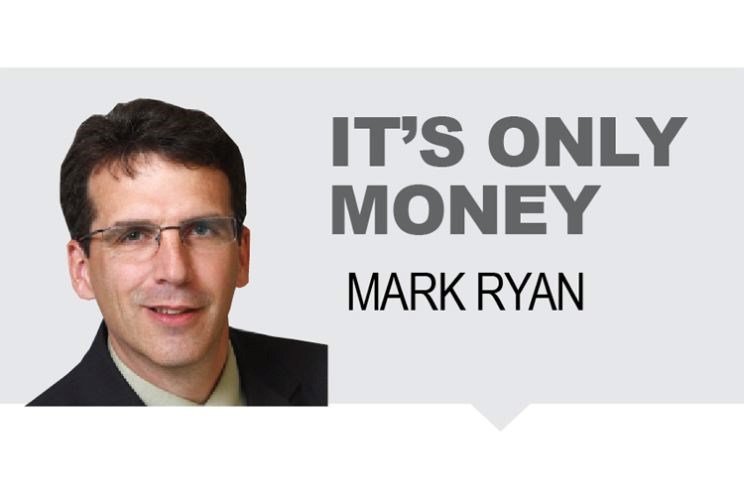"If at first the idea is not absurd, then there is no hope for it," Albert Einstein said.
A client of mine has been a brilliant entrepreneur since he was very young. In the mid-to-late 1980s, he approached a national corporation with what seemed like a decidedly goofy idea to jointly market glass-encased commemorative wall-hangings featuring some of their packaging materials (I'm keeping this deliberately vague). He had no money, just boyish charm and a head full of dreams, so his half of the partnership was intangible.
Somehow he managed to get an appointment with a corporate executive to pitch his idea - maybe just to amuse the executive, I'm not sure. He was rebuffed at first, but persisted enough to get a second meeting, and eventually came up with a prototype that was quite impressive. He got the sponsorship, built the product line, and got it launched in time for a big event the company was sponsoring. I don't remember precisely how it all turned out, but the story speaks to his way of looking at the world - a puppy dog chasing a stick in the creek. This trait, whatever it is, is imbedded somewhere near the heart of every business owner.
Albert Einstein knew well that there was a stumble-forward aspect to genius, fuelled by a mixture of passion and awe when he said: "Anyone who can drive safely while kissing is simply not giving the kiss the attention it deserves."
Business owners tend to be single-minded, and sometimes a little crazy. And if there was a way to kiss and drive, they'd find it.
By the time I met this client, he was a decade older and on to another, far more ambitious venture, seeking financing from us. He got the loan against all odds. He had not a nickel to put in to it, and we, the biggest bluest, stodgiest institution in Canada lent him the start-up capital, breaking a few rules on the way because the business plan was actually that compelling.
Not the shiny paper the plan wasn't written on. There was no written plan per se. The idea pretty much spilled out of him as we spoke, and I assembled it in to something I thought I might be able to argue successfully to bank executives - and inexplicably it flew. (He was taking over a very successful business, so I'd best not pretend that we at the bank were actually all that creative.)
"When you first make a decision to turn the boats and there's no turning home... I think that's when things get really exciting because it's sink or swim. People become really innovative once they become isolated and terrified," Eric Weinstein
Within two or three years, the client paid off his debts, and we financed him to buy out his partner. Today, about 25 years later, he has made this and other dreams (some of which crashed on take-off) in to a life's venture with dividends likely to pay out for generations.
One more from Einstein: "It would be possible to describe everything scientifically, but it would make no sense; it would be without meaning, as if you described a Beethoven symphony as a variation of wave pressure."
And no, I'm not done railing against communism.
This starkly contrasting quote belies the confounding idiocy of the more radical leftists who assume that every business owner as a privileged class, and a force for oppression. (Never mind that they have bet their lives on a dream that is employing these same workers).
Red Terror Soviet interrogation instructions read:
"In the interrogation, do not seek evidence and proof that the person accused acted in word or deed against Soviet power. The first questions should be: 'What is his class? What is his origin? What is his education and upbringing?' These are the questions which must determine the fate of the accused."
My client was really not all that unique. Nearly all successful small businesses are driven by owners with a basket of these same quirky features.
Marx railed against such men and women as Bourgeois - a perpetrator class, born of advantage, who seized land, labour and capital in a zero-sum ploy to hold the little people down.
Among the above-mentioned guilty classes were anyone with so much as a milk cow who produced a little surplus to sell to his neighbour. This smallest of small businesses was mischaracterized as an enemy to the social revolution, and many thousands were either killed or sent to prison camps or both. And, as history painfully details, this wasn't a passing fume of jealousy. It was dogma at its worst, ultimately resulting in tens of millions of deaths. The ranges of death estimates are massive (say, 50 to 250 million) because information has never flowed freely in such ends-justifying regimes.
Aleksandr Solzhenitsyn (a former devoted soldier to the cause) was dragged in to the Gulag for 10 years for daring to utter a veiled complaint about Stalin in a hand-written letter to a friend. In one of his interrogation sessions the officer sitting across from him took Solzhenitsyn's journals and compilations (he was a prolific writer) and tossed them carelessly in to the furnace.
The prisoner was relieved at first, glad that his writings couldn't be used to indict any more of his friends or family. But thereafter, every time he lumbered past the smoke stack of that building, he looked at the fumes rising from the top and pondered the magnitude of accumulated dreams, visions and wisdom that floated into nothingness.
Mark Ryan is an investment advisor with RBC Dominion Securities Inc. (Member-Canadian Investor Protection Fund), and these are Ryan's views, and not those of RBC Dominion Securities. This article is for information purposes only. Please consult with a professional advisor before taking any action based on information in this article. See Ryan's website at: http://dir.rbcinvestments.com/mark.ryan.



